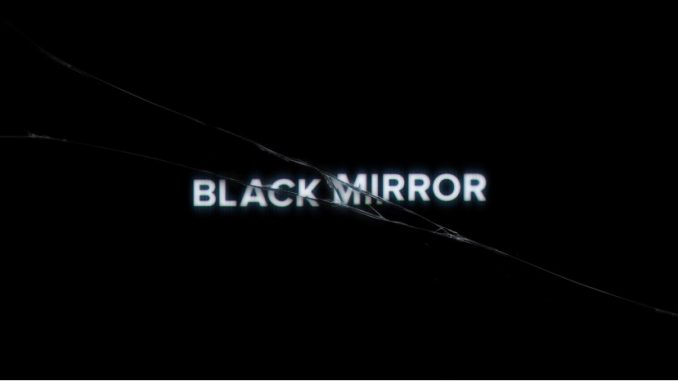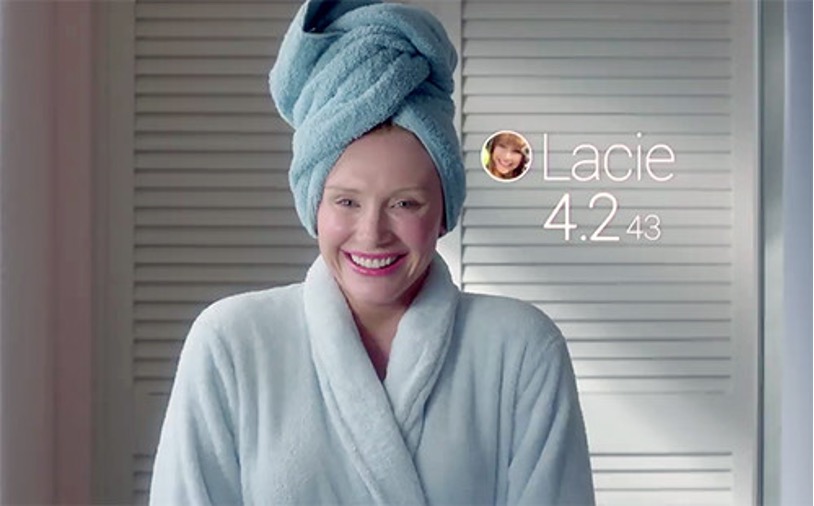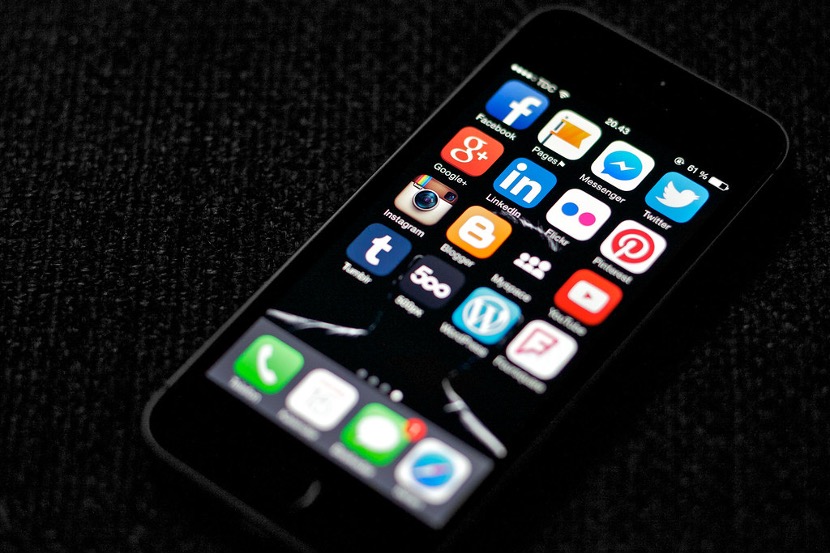
With the development of technology, the Internet has greatly changed people’s lives. Black Mirror (directed by Charlie Brooker, the first season was released in 2011 and has now been released for five seasons) shows how existing technology can be developed for the better or worse shortly from the perspective of a TV series. Each separate episode of Black Mirror reflects on how the Internet has changed our lives through a form of anti-utopia to current society. (Allal-Chérif, 2019)
The state of the Internet
In the Global Social Media Statistics Study 2021, 53.6% of the world’s population is using social media, and its popularity continues to grow substantially. (Chaffey, 2021) In the previous late 20th century, it was thought that the Internet in the 21st century would be a tool for the inclusion and development of society. However, the Internet crisis of 1999-2000 and 2008 destroyed the false world of open societies. People allowed the most primitive capitalism to control the Internet through oligarchic list platforms. Some of these large companies then controlled most of the clicks people made on the Internet, which amounted to providing content for their platforms for free. Users unknowingly click and browse into a new commodity of the information society called data. These dominant platforms have gradually made people addicted to the Internet through digital media. (Giraldo-Luque et al., 2021)
The False World of the Internet
The primary problem facing the Internet is the growing number of people living in a virtual online world. Take for example the story of “Nosedive”, the first episode of the third season of Black Mirror. This episode stars Bryce Dallas Howards and Alice Eve. It focuses on the world of Nosedive, where society has been designed as a new hierarchy based on popularity. People try to live in a world made up largely of digital technology through false camaraderie and careful planning. In this world, the higher the rating, the higher the quality of life and the more privileges. (Övgü Tüzün, 2021) One of the shots shows Lacie sitting at a cafe taking a bite of a cookie and spitting it out with a frown, but then she sends a photo on her phone with the caption “Brushed suede with cookie… Heaven. It impressed others by showing herself in a way that was different from how she felt. This segment also reflects the contemporary desire for everyone to see their own flawless lives through the “filters” of the Internet and for others to envy them. This has led to contemporary Internet users living both real and online lives. (Sancto, 2016) It’s like in Nosedive, where everyone greets each other and spends their lives politely and respectfully. Everyone becomes false and inauthentic because treating people according to their real character leads to a lower rating for themselves. In reality, due to the Internet and social media, many people have stopped generating ideas about what self-worth is. People seem to think that their self-worth depends on the number of “likes” they get on social media, rather than what they achieve in real life.
 “Black-Mirror-Nosedive_unume6” by Patricia W. is licensed with CC BY-NC-SA 2.0. To view a copy of this license, visit https://creativecommons.org/licenses/by-nc-sa/2.0/
“Black-Mirror-Nosedive_unume6” by Patricia W. is licensed with CC BY-NC-SA 2.0. To view a copy of this license, visit https://creativecommons.org/licenses/by-nc-sa/2.0/
Social media affects mental health
According to the Pew Research Center, 69% of adults and 81% of teens in the United States use social media. This puts large numbers of people at risk for anxiety, depression or increased risk of illness due to social media use. (McLean Hospital, 2021) The Nosedive episode of the Black Mirror TV series has a scene where Lacie’s colleague is discriminated against and ostracized by others due to her low score, but at first Lacie chooses to support her colleague, only to find that such behavior harms her score and eventually chooses to avoid the colleague. This scenario reflects the reality of the current social networking world. Social pressure ends up taking a place on the internet yah to humans and their real environment. (Giraldo-Luque et al., 2021) On the contemporary Internet, people want to post content to get positive feedback and compare themselves to others. This enhances self-esteem and a sense of belonging in the social circle. There is a fear of missing out on the action because the lack of experience causes anxiety. And people’s thoughts are also influenced when they go online to see that they are excluded from an activity. (McLean Hospital, 2021). Nosedive imagines a world where people’s obsession with social media is escalating and the whole society is caught in high stress. With the rise of digital technology, the Internet has exerted control over people’s thoughts and behaviors, and people are unable to critique different points of view or reveal their true thoughts. This also directly affects people’s mental health. What is more important to note is that adolescent mental health is also changing because of social media. The earlier teens start using social media, the greater the impact on mental health. Social media increases the likelihood that teens will grow up seeing unrealistic pictures and have a hard time telling what is real. (McLean Hospital, 2021)
 “Social Media” by Peter Ras is licensed with CC BY-NC-SA 2.0. To view a copy of this license, visit https://creativecommons.org/licenses/by-nc-sa/2.0/
“Social Media” by Peter Ras is licensed with CC BY-NC-SA 2.0. To view a copy of this license, visit https://creativecommons.org/licenses/by-nc-sa/2.0/
Weak regulation of social media
With the shift to the web 2.0 era, more and more people are accessing various forms of Internet content through social media platforms and apps. Due to the trend of monopolization in the Internet industry, social media has been accused of spreading disinformation and promoting violence around the world. Experts say that the reality of some deadly riots is largely instigated on social media platforms. In addition, it has been found that when videos violate copyright rules, Google can act quickly to remove the video from Youtube. But when the material involves hate or illegal content, the platform does not immediately take the same action. For example, the accounts of politicians such as former U.S. President Donald Trump may post abusive or misleading content. It is believed that platforms do not consistently enforce their rules because they will allow accounts that they believe to serve the public interest to post such content. However, if this content is posted by ordinary people it will most likely be removed. (Siripurapu & Merrow, 2021). In this episode of Nosedive, everyone can view each other’s ratings, and your every move is being watched at all times. If you handle a problem in a way that is seen as unsatisfactory in the eyes of others, then you will receive a low score from others. There was a real-life app called Peeple in 2015, which allows you to rank anyone around you. The Washington Post reported that appointments that people considered private meetings were made completely public by Peeple. Everything people can be judged and recorded. (Gilbert, 2016) This is a testament to the weak regulation of social media. With the amount of controversy surrounding the Internet and social media, digital platforms need to be held accountable for the public good.
A call to people and the Internet
All in all, the Internet has had an impact on people’s lives. Black Mirror, the TV series, reflects the fundamental challenge people face in the 21st century of being invaded by the Internet and social media. People need to reflect on the editable nature of their online lives and the uneditable nature of their real lives.” The purpose of the episode “Nosedive” is to warn people about the consequences of being addicted to the Internet. Furthermore, people can reduce their addiction to the Internet by controlling their behavior and distracting themselves from it. Moreover, people also need to reflect on the dangers of the Internet as well as its benefits, not to abuse social platforms, and to promote media and digital education from a responsible perspective. (Giraldo-Luque et al., 2021) Digital platforms also need to do a lot of work to shape media regulation tools in the mass media environment, and platforms need to vigorously regulate potentially harmful content posted online. (Flew et al., 2019)
References
Allal-Chérif, O. (2019). ‘Black Mirror’: the dark side of technology. The Conversation. Retrieved from https://theconversation.com/black-mirror-the-dark-side-of-technology-118298.
Chaffey, D. (2021). Global social media statistics research summary [updated 2021]. Smart Insights. Retrieved from https://www.smartinsights.com/social-media-marketing/social-media-strategy/new-global-social-media-research/.
Flew, T., Martin, F., & Suzor, N. (2019). Internet regulation as media policy: Rethinking the question of digital communication platform governance. Journal of Digital Media & Policy, 10(1), 33–50. https://doi.org/10.1386/jdmp.10.1.33_1
Gilbert, S. (2016). ‘Black Mirror’ Is Back: ‘Nosedive’ Is a Sharp Satire About Social Media. The Atlantic. Retrieved from https://www.theatlantic.com/entertainment/archive/2016/10/black-mirror-nosedive-review-season-three-netflix/504668/.
Giraldo-Luque, S., Carniel Bugs, R., & Tejedor, S. (2021). Nosedive and the “Like” Dystopia: A Reflection on Black Mirror. In Reading »Black Mirror (Vol. 75, pp. 165–182). transcript Verlag. https://doi.org/10.14361/9783839452325-009
McLean Hospital. (2021). Here’s How Social Media Affects Your Mental Health | McLean Hospital. Mcleanhospital.org. Retrieved from https://www.mcleanhospital.org/essential/it-or-not-social-medias-affecting-your-mental-health.
Övgü Tüzün, H. (2021). Mediated Subjectivities in Postemotional Society: Black Mirror’s Nosedive. In Reading »Black Mirror (Vol. 75, pp. 149–164). transcript Verlag. https://doi.org/10.14361/9783839452325-008
Sancto, R. (2016). Black Mirror ‘Nosedive’ review – A dark spin on a modern-day Pleasantville. Little White Lies. Retrieved from https://lwlies.com/articles/black-mirror-nosedive-review/.
Siripurapu, A., & Merrow, W. (2021). How Countries Regulate Online Speech. Council on Foreign Relations. Retrieved from https://www.cfr.org/in-brief/social-media-and-online-speech-how-should-countries-regulate-tech-giants.

Black Mirror by Shuting Liang is licensed under a Creative Commons Attribution 4.0 International License.